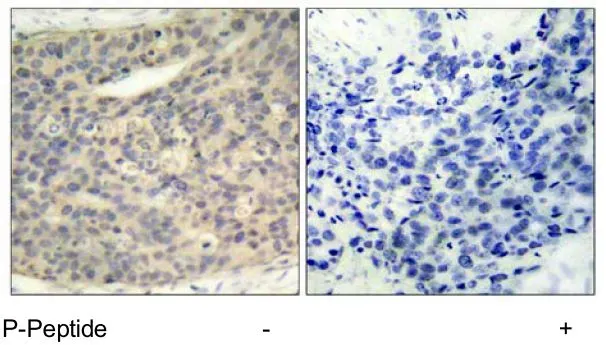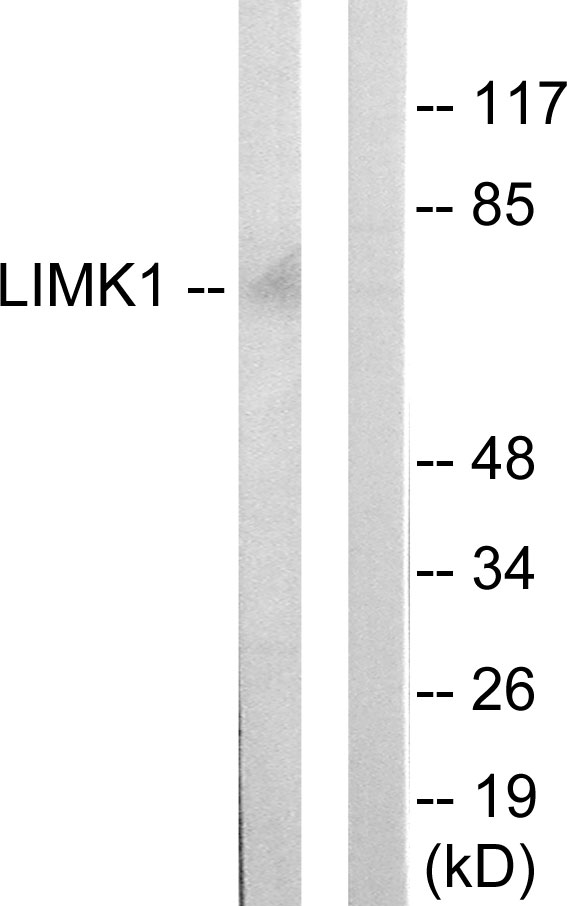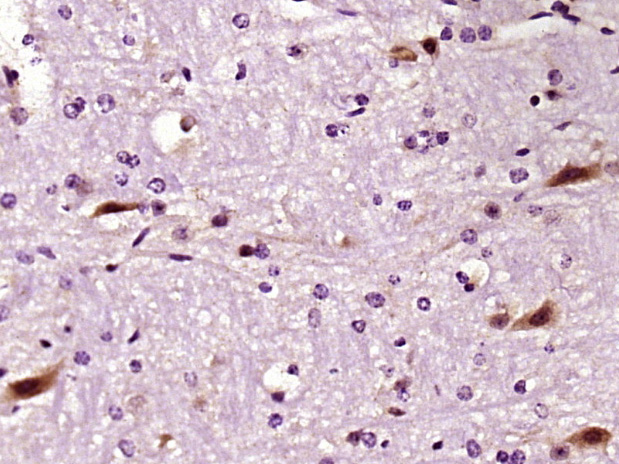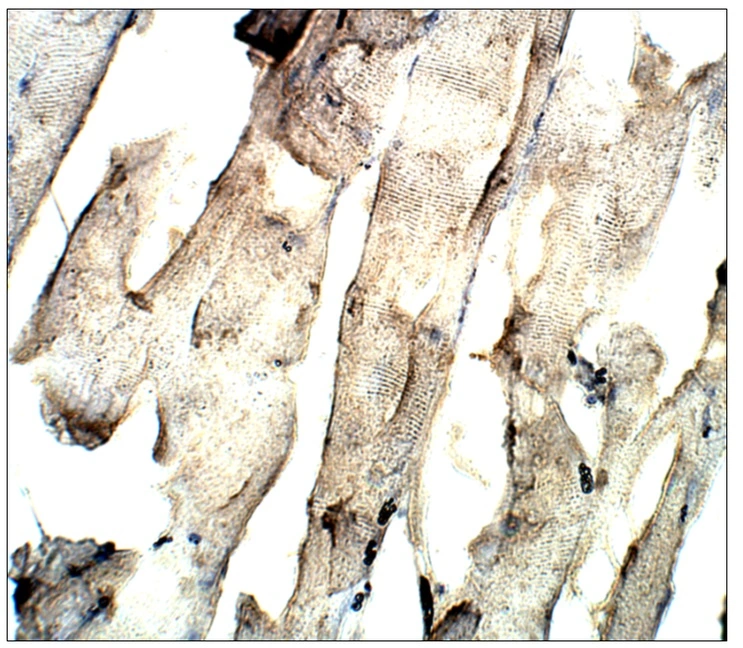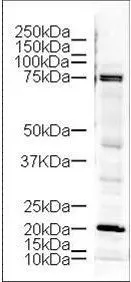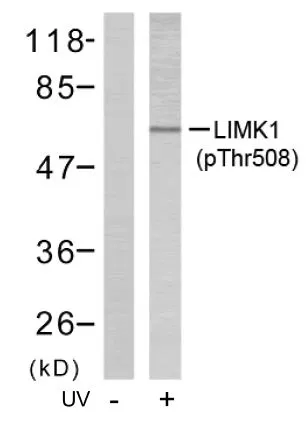
WB analysis of NIH/3T3 cells treated or untreated with UV (60min) lysates using GTX79023 LIMK1 (phospho Thr508)? + LIMK2 (phospho Thr505) antibody.
LIMK1 (phospho Thr508) + LIMK2 (phospho Thr505) antibody
GTX79023
ApplicationsWestern Blot, ImmunoHistoChemistry, ImmunoHistoChemistry Paraffin
Product group Antibodies
ReactivityHuman, Mouse
TargetLIMK1
Overview
- SupplierGeneTex
- Product NameLIMK1 (phospho Thr508) + LIMK2 (phospho Thr505) antibody
- Delivery Days Customer9
- Application Supplier NoteWB: 1:500 - 1:1000. IHC-P: 1:50 - 1:100. *Optimal dilutions/concentrations should be determined by the researcher.Not tested in other applications.
- ApplicationsWestern Blot, ImmunoHistoChemistry, ImmunoHistoChemistry Paraffin
- CertificationResearch Use Only
- ClonalityPolyclonal
- ConjugateUnconjugated
- Gene ID3984
- Target nameLIMK1
- Target descriptionLIM domain kinase 1
- Target synonymsLIMK, LIMK-1, LIM domain kinase 1, LIM motif-containing protein kinase
- HostRabbit
- IsotypeIgG
- Protein IDP53667
- Protein NameLIM domain kinase 1
- Scientific DescriptionThere are approximately 40 known eukaryotic LIM proteins, so named for the LIM domains they contain. LIM domains are highly conserved cysteine-rich structures containing 2 zinc fingers. Although zinc fingers usually function by binding to DNA or RNA, the LIM motif probably mediates protein-protein interactions. LIM kinase-1 and LIM kinase-2 belong to a small subfamily with a unique combination of 2 N-terminal LIM motifs and a C-terminal protein kinase domain. LIMK1 is a serine/threonine kinase that regulates actin polymerization via phosphorylation and inactivation of the actin binding factor cofilin. This protein is ubiquitously expressed during development and plays a role in many cellular processes associated with cytoskeletal structure. This protein also stimulates axon growth and may play a role in brain development. LIMK1 hemizygosity is implicated in the impaired visuospatial constructive cognition of Williams syndrome. Alternative splicing results in multiple transcript variants encoding distinct isoforms.[provided by RefSeq, Feb 2011]
- ReactivityHuman, Mouse
- Storage Instruction-20°C or -80°C,2°C to 8°C
- UNSPSC41116161

